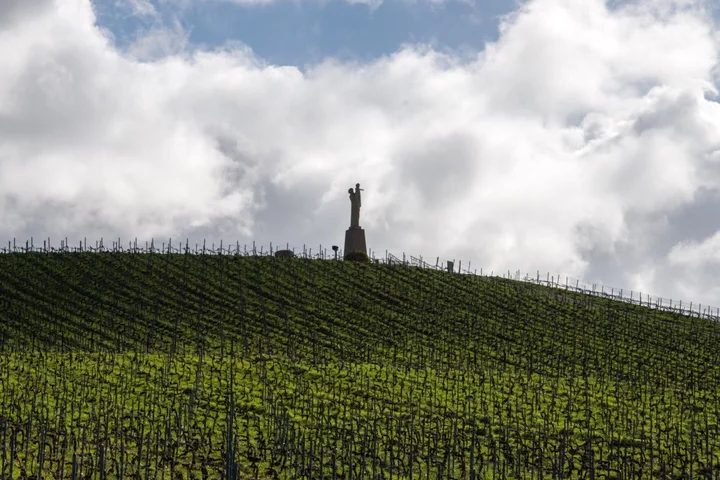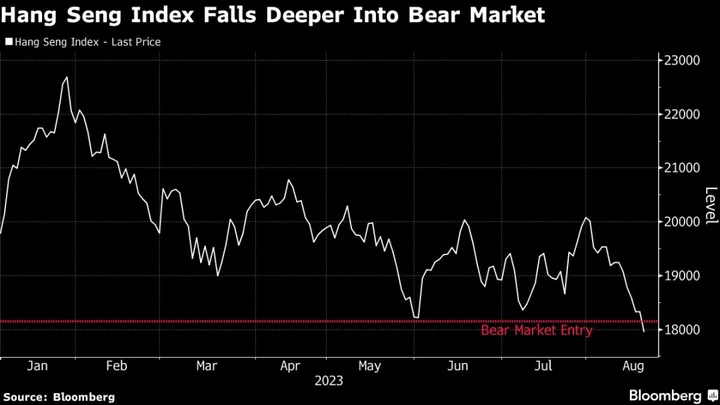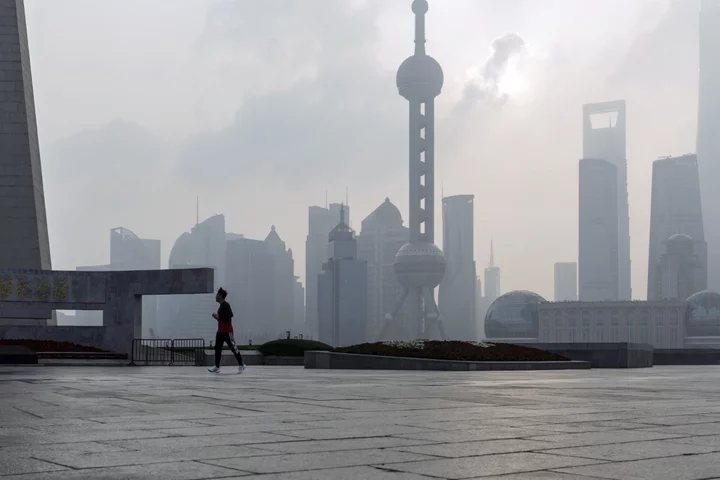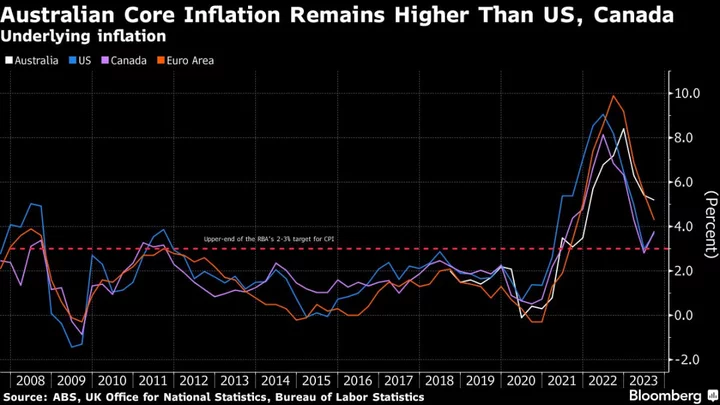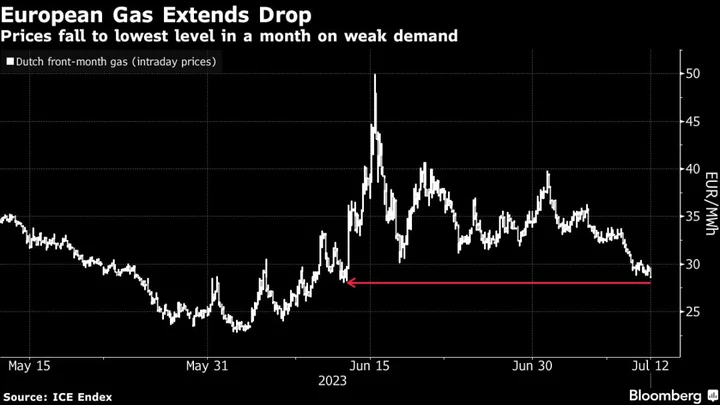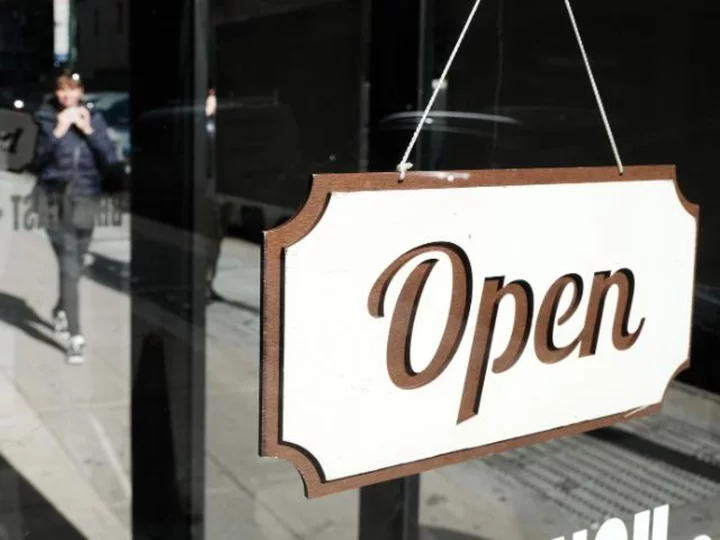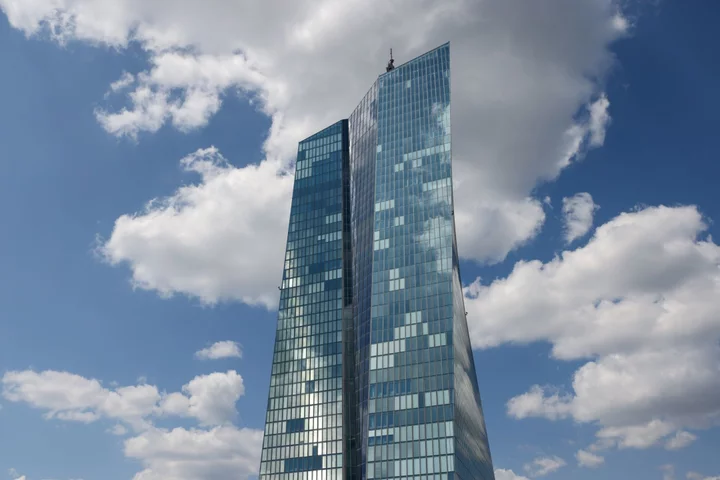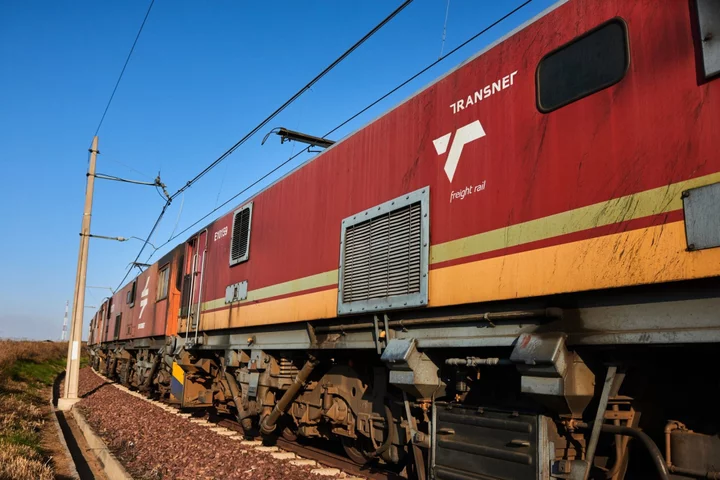As a little girl helping her parents and grandparents in the rolling vineyards of northeast France, Sophie Moussié declared that she would one day run the family business.
These days, three young boys tag along as Sophie works the same rich soil. And the legacy vines that cling to the hillsides belong to her.
Moussié, 35, is newly head of the champagne house Guy Méa. Her maternal grandfather, for whom the winery is named, passed away last year and her parents decided to retire. So Sophie became the fifth generation to take ownership, to work the land, to make the wine, to assume the family heritage.
In doing so, she joins a wave of other young women in the Champagne-Ardenne region, and throughout France, leading these deep-rooted endowments into an uncertain future.
“The family patrimony is an inheritance, that is to say that one takes on one’s shoulders a responsibility to perpetuate a business, a responsibility to maintain jobs,” she said. “I have a responsibility to work with nature, the environment.”
But the environment is changing, and pressure from outside investors is driving up the market values of family-run vineyards and farmland throughout the country to the point that some can’t pay the inheritance tax without running up long-term debt or selling off a portion of their estate.
The pressure is especially acute for heritage vineyards like Guy Méa, which covers 7 hectares of grand and premier cru champagne vineyards—gnarly vines, twisting out of limestone and clay soils, in a patchwork of plots mostly in the Montagne de Reims about 100 miles east of Paris.
When an estate operator dies in France an average inheritance tax now amounts to more than five years’ worth of a winery’s pure profit, the General Union of the Champagne Winemakers estimates.
“In France transmission is very expensive,” said Moussié. “It’s very, very expensive.”
So while Moussié marks her first year as sole head of Guy Méa, her mind and valuable time are still occupied by the process of organizing her business and paying down the inheritance tax. And she’s already planning for the time, perhaps decades from now, when the family business is handed down again.
“It’s also my responsibility to conserve this story, this family history, this family patrimony,” she says, “through the next generation.”
‘We Are Small Pawns’
The actual tax rate Moussié and others must pay to take over an estate depends on how well their parents or grandparents planned and organized their business—and because this is an inheritance, the number of heirs.
In France the order of heirs and inheritance for landowners is set into laws that began under Napoleon. An heir can include the deceased person’s spouse, children, parents, aunts and uncles, and first cousins, and others, depending on the marital status and presence of a will.
“C’est compliqué,” as the French say. It’s complicated.
Without any special preparation and in the event of the death of the owner, each heir benefits from an allowance of 100,000 euros (about $109,000), after which the tax rate is progressive. It is for example 20% on an inheritance of 15,933 to 552,324 euros, then the rate increases to 30%, and upwards from there.
“When the transmission of a vineyard is not prepared and an owner dies, this can quickly represent an extremely high transmission cost for the heirs,” said Charles Guillaume, legal manager for the Agricultural Cooperation and Winegrowers Cooperative, the Paris-based advocacy group for wine and agricultural cooperatives.
The budget passed by the French government late last year made a few changes meant to give farmers the same tax benefits as other businesses. An agriculture law now in the works could do even more, but its fate is uncertain.
French lawmaker Eric Girardin took to the floor of the National Assembly late last year to call for additional changes to the nation’s tax structure for estate wineries.
“We are small pawns by generation to transmit this culture and to maintain French culture,” said Moussié, seated at a farmhouse table surrounded by bottles of her family’s champagne and photos of her three sons traipsing among the vines.
“But after a while between all the taxes, etc., the fact that there aren’t more people who want to work in the vineyards can be a bit complicated.”
Aging Farmers, Rising Land Values
France’s farms and its nearly 60,000 vineyards are critical to the national identity and sovereignty of the country, as well as its bottom line. Wine makes up 14% of agricultural production by value in France, but uses just 3% of the agricultural land.
Exports of wine and spirits help offset France’s foreign trade balance — in 2021 wine and spirits represented a net surplus of 14.6 billion euros for foreign trade, according to a report by Girardin.
But France’s farmers are getting old.
More than one out of two farmers will retire in the next 10 years, Girardin said. And France’s wine growers, too, are aging.
Nearly 63% of wine growers are over 50 years old, according to the Champagne union. And only about 7,000 of the nation’s vineyards are now headed by independent winegrowers, like Guy Méa.
Pair an aging owner and farmer population with rising land costs and you’ve got an inheritance problem.
And then there is the issue of an extended family of heirs, not all entirely committed to the wine growing way of life—these minority partners can be “sensitive” to the value offered by potential outside investors, Girardin wrote in a report he produced on inheritance taxes.
France is seeing “a gradual disappearance of family farms and an increase in the acquisition of agricultural and wine-growing farms by foreign or institutional investors, who are not subject to such restrictive transfer taxes,” Girardin said, calling for an easing of inheritance taxes in the new budget.
External investors—corporate or private—buy up land at rates not always linked to the profitability of farms, but instead tied to their prestige, said Guillaume, the Paris-based wine industry advocate.
In recent years Provence, with its rosé now surging in popularity, has become the center of high-value acquisitions and deep-pocketed investment. In February, after much speculation, Moët Hennessy announced it would take on a majority capital role in the Chateau Minuty, a grand cru classé estate in Côtes-de-Provence, held by the Matton family over four generations since 1955.
At the time of the announcement, Jean-Etienne Matton, one of the current owners and operators, told France’s Figaro newspaper that he and his brother would have liked to pursue a family succession, “but we felt it would be complicated. It’s a large family,” he said. The brothers will continue to manage the estate, which in 2022 produced 9 million bottles of wine, for two or three years, he said.
The Fa’bulleuses
“The presence of such investors on the market can lead to an increase in the price of vineyard land and create competition with family transmissions which can see the opportunity for a strong capital gain in these takeover proposals,” Guillaume wrote in an email.
The value of farmland in Saone and Loire in the Burgundy region doubled from 2009 to 2019, but the bottle price can’t compensate for the increase in land valuations. And the spike in the cost of land comes even as wineries see a drop in grape yield because of climate change, Girardin’s report found.
The Guy Méa vines sit in an area where the average price per hectare of land today is 1.6 million euros. In the course of two decades, the price of the highest-level Appellation d’Origine Protégée (protected designation of origin) of Champagne vines has more than tripled, according to the General Union of Champagne Winemakers.
“If you don’t organize your transmission, you need to sell your vineyard. And who buys vineyards? LVMH,” Moussié said, referring to LVMH Moët Hennessy Louis Vuitton, which owns brands like Moët & Chandon, Krug, Veuve Clicquot, as well as Dior, Givenchy, and others.
As a child, Moussié would tell people she wanted to be a “champagneuse,” a made-up word that encapsulated the future she saw for herself in the family business. Now she frets that there are too few people who share her dream.
Moussié is part of a rarified group of French women who sit at the head of a vineyard business—women make up just 12% of heads of operations in viticulture, compared to about 17% in agriculture in general, according to data from France’s Agricultural social mutual organization. Through the Fa’bulleuses, a play on the words fabulous and the word for the ever-present bubbles in champagne, she joins a union of sorts with six other women also at the head of champagne houses who share their knowledge and experience, and advocate for their region and products.
Moussié already has seen the effects of corporate pressure, she said. A few of her new generation have sold their estates—they looked at a life where success from year to year depends on an unpredictable climate, they calculated how much tax they’d pay to keep their land, and they decided they would rather have a big house, a nice car.
But that’s it, their family heritage is gone forever, she said, in some cases taking with it centuries of French winemaking tradition.
Pas Mal
Just as France’s wine products vary — a floral Blanc de Blancs Champagne bears little resemblance to a toffee-scented Cognac—the challenges facing each region’s vineyards vary, Girardin found.
The number of holdings — parcels or estates of vineyard land held by a family or company — fell between 2010 and 2020 in nearly all French vineyard regions. The result is more consolidation and fewer owners per hectare.
Charente Maritime, where Cognac vineyards stretch across nearly 75,000 hectares, was an exception during this period of consolidation: the region saw an 11% increase in vineyard holdings, according to data provided by the Bureau National Interprofessionnel du Cognac (BNIC).
Anthony Brun, a winegrower and the head of the viticulture family at the BNIC, was in the family business and had already begun the land transmission process when his father died unexpectedly. That made for a more expensive and complicated transmission, but still the cost could have been much more had they not already done some planning, he explained.
Generally, Brun said, in Cognac, the outlook remains rosy because there is still land to expand to and the product’s success appeals to younger generations of winegrowers. There is a price increase for land because Cognac is doing well, but there are still plantable areas, which helps reduce pressure when a vineyard does sell, he said.
“We are not in the case of other names,” Brun said, meaning other wine regions.
The key to keeping inheritance costs low is anticipation and preparation — in Cognac, groups like BNIC try to share the best information on how to ease generational transmission, he said.
France generally has a heavy taxation on inheritance transmission compared to neighboring countries. But not everyone is calling for change.
Viticulture benefits from a privileged place in the fiscal law in France, said Martin Rouzeau, a notary specially trained to help family estates prepare their inheritance process.
“The transmission of wineries is split over time. The cost is significant, but the winegrower is able to pay if the transmission project is well prepared in advance,” he said about the inheritance process.
And unlike other areas with perhaps fewer resources, Champagne winegrowers are generally accompanied and advised by specialized professionals like a notary, lawyer, or an accountant, he said.
Rouzeau said that in his view the inheritance tax doesn’t have to be a problem, especially in the Champagne region where the cost of wine has increased alongside the cost of land. But, he noted, it’s not his money — he’s not the one who needs to have 120,000 euros on hand when parents or grandparents die.
Solutions Proposed
Some in French President Emmanuel Macron’s government and the French legislature want to ensure the next generation of farmers is prepared to take on the work and that there are enough people who can and want to support French agriculture and wine growing.
Agriculture Minister Marc Fesneau tasked Girardin with his report last year and the government and Parliament are working on a new agriculture law this year.
French businesses can benefit from a quasi-exemption from capital gains tax for corporate investors under certain circumstances thanks to the “niche Copé,” named for the former budget minister Jean-François Copé, who developed the scheme to keep France’s business environment competitive with neighboring countries.
Girardin pointed to this scheme when arguing for a leveling of the tax playing field for family owners and operators. Several benefits provided to agricultural inheritances exist already, such as a system of long-term leases they can pair with the advanced transfer of property to heirs at a lower rate of taxation.
The budget for 2023 changed one of those tax tools—up to 500,000 euros of rural property can be transferred at a very reduced tax rate if it is rented by long-term lease and if the donee keeps the land for 10 years (instead of 5 years for the previous ceiling of 300,000 euros).
The Champagne union calls for the cap to be removed entirely—a proposal Girardin put forward in his report and that could find its way into the new agricultural law.
Girardin’s plan also would limit the impact of speculative purchases by removing the outliers—the most exceptional prices when calculating land values—to determine how much of an inheritance can be transferred free of charge. This would bring down the overall land value for inheritance purposes and reduce the tax burden.
And Girardin wants France to create a “transmission check” for farm managers between the ages of 40 and 60 to get them thinking and acting for the future.
He also proposed a one-stop shop in the government for farmers to get specific answers directly about the estate transfer processes. And even more fundamentally he calls for strengthening the availability of advisers skilled in rural law.
Fesneau, the agriculture minister, is currently touring the country, speaking with agriculture groups and meeting with students in agriculture schools in advance of his new law and pact on agriculture. He expects to have a bill ready this summer for Parliament to debate in the fall.
The bill will particularly focus on climate change and the renewal of generations within agriculture, he said.
The Job
It’s easy, Moussié said, for people outside of the industry to just see the money—it’s Champagne after all. But they don’t consider the work of a winemaker: the mud, the stress of a late frost, the hands stained from picking and weighing bunches of grapes, the long, intense days of the harvest, the constant vigilance of aging the wine in barrels.
The work and family are showcased throughout the winemaking and cellar areas at Guy Méa: a photo of Sophie pregnant clipping a vine; another image with four generations sitting among barrels; another still of the day they cut down the tree that would become their barrels. Even the champagne aging in barrels bears a personal touch — each one is named for a family member of whom that blend of grapes reminds Moussié.
“If you are not in this environment, you will see just the money. Not the importance to have a vineyard to make a wine,” she said.
Moussié believes deeply, she said, in her responsibility to her land and sees her family as creating a heritage not just for themselves, but for others and for France.
Occasionally she will hear from a customer with a story that stays with her. Like the man gifted a bottle of her family’s champagne as a newborn, who wanted Sophie to know that the bottle had just been opened to toast the birth of his own child, the next generation.
“And so I did my job,” Moussié said. “That is also my patrimony.”
— With interpretation assistance in France by Yana Mihailuka

